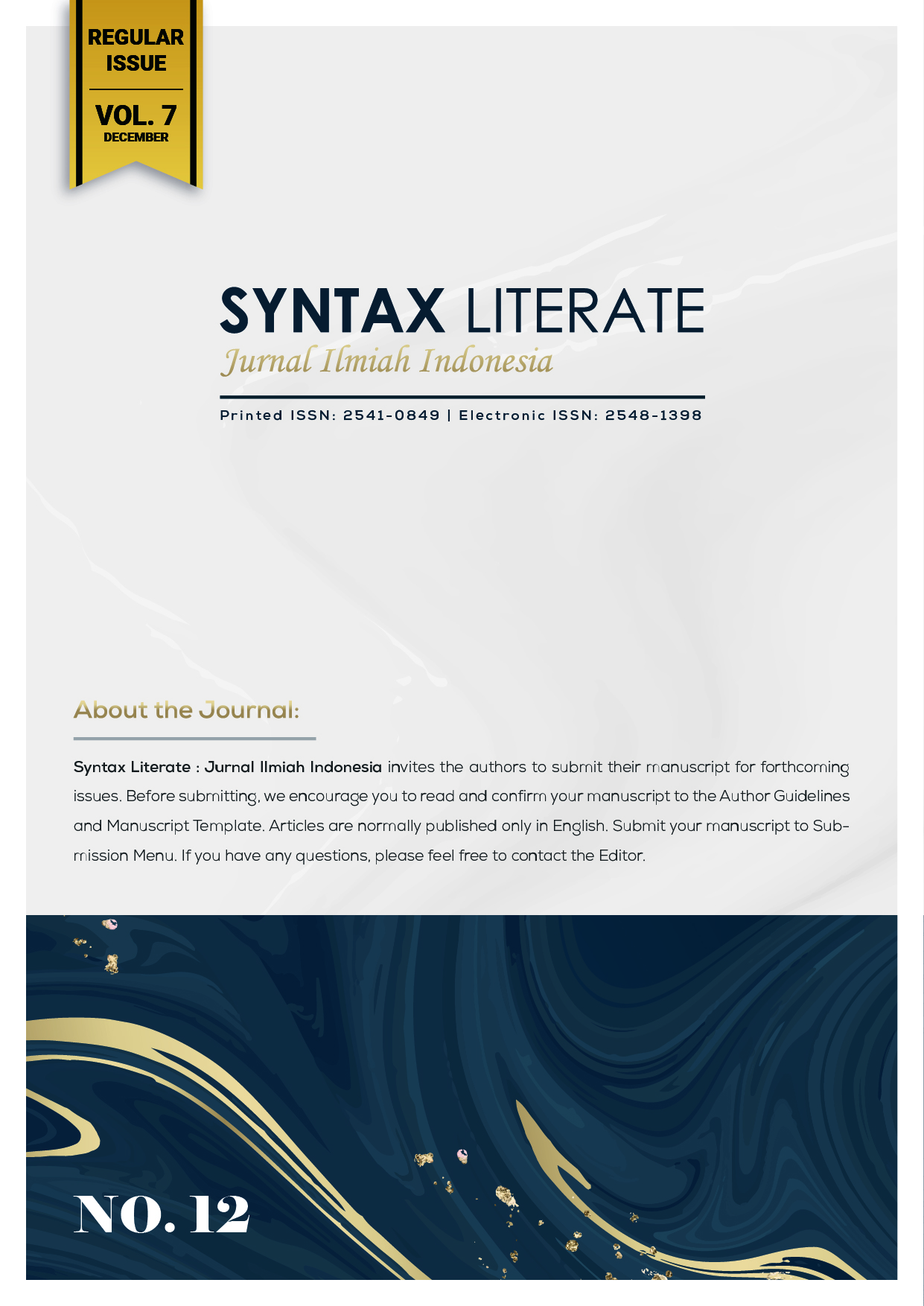Management of Religious Character Education at MTS Sabul Hayat Jango, Central Lombok
Abstract
Noble character is an important aspect in educating children. Even a nation's character is also determined by the moral level of the nation. In this view it is also stated about the formation of character, the formation of this character can be said as an effort to form character. Without character someone easily does anything that can hurt or misery other people. Character is the possession of good things. Parents and educators have a duty to educate children with character content through the subject matter being taught. Therefore, character building efforts are very important to manage students' personalities from negative things. It is hoped that the awakened character will encourage every human being to do something with his conscience. In cultural studies, values are the core of every culture. In this context, especially moral values which are a means of regulating social life, are very decisive in every culture. Especially in the era of globalization which has made relations between worlds widely open, the bonds of moral values are starting to weaken, society is experiencing a multidimensional crisis, and the crisis that is felt the most severe is a crisis of moral values. Currently, Indonesia is facing a very complicated problem in the form of symptoms of a decline in morality in the practices of the nation and state. This situation is really very ironic when this nation actually has.
Downloads
References
Harun, A. J., & Sudaryanti, A. M. (2020). Pengembangan Model Pendidikan Karakter Berbasis Multi Kultural Dan Kearifan Lokal Bagi Siswa PAUD. UNY Press. Google Scholar
Hidayatullah, M. F., & Rohmadi, M. (2010). Pendidikan karakter: membangun peradaban bangsa. Yuma Pustaka. Google Scholar
Idrus, A. (2009). Manajemen pendidikan global: visi, aksi, dan adaptasi. GP Press. Google Scholar
Khotimah, K. (2016). Model manajemen pendidikan karakter religius di SDIT Qurrota A’yun Ponorogo. Muslim Heritage, 1(2), 371–388. https://doi.org/10.21154/muslimheritage.v1i2.605. Google Scholar
Lickona, T. (2022). Character matters (Persoalan karakter): Bagaimana membantu anak mengembangkan penilaian yang baik, integritas, dan kebajikan penting lainnya. Bumi Aksara. Google Scholar
Ma’mur, J. (2016). Buku panduan internalisasi pendidikan karakter di sekolah. Diva Press. Google Scholar
Machendrawaty, N., & Safei, A. A. (2001). Pengembangan Masyarakat Islam. PT Remaja Rosdakarya Offset–bandung. Google Scholar
Pasaribu, R. B. F. (2013). Pancasila Dan Kehidupan Beragama (pp. 1–38). Google Scholar
Rakhmawati, I. (2015). Peran keluarga dalam pengasuhan anak. Jurnal Bimbingan Konseling Islam, 6(1), 1–18. https://doi.org/10.21043/kr.v6i1.1037. Google Scholar
Rochmawati, N. (2018). Peran Guru dan Orang Tua Membentuk Karakter Jujur Pada Anak. Al-Fikri: Jurnal Studi Dan Penelitian Pendidikan Islam, 1(2), 1–12. https://doi.org/10.30659/jspi.v1i2.3203. Google Scholar
Subianto, J. (2013). Peran keluarga, sekolah, dan masyarakat dalam pembentukan karakter berkualitas. Edukasia: Jurnal Penelitian Pendidikan Islam, 8(2), 331–354. https://doi.org/10.21043/edukasia.v8i2.757. Google Scholar
Tim Pendidikan Karakter Kemendiknas. (2010). Pembinaan Pendidikan Karakter di Sekolah Menengah Pertama. Jakarta: Kemendiknas.
Wahyudi, W. (2016). Reaktualisasi Nilai-Nilai Pancasila Dalam Pembangunan Karakter Bangsa Indonesia. Prosiding Seminar Nasional Inovasi Pendidikan. Google Scholar
Zuriah, N., & Yustianti, F. (2007). Pendidikan moral & budi pekerti dalam perspektif perubahan: menggagas platform pendidikan budi pekerti secara kontekstual dan futuristik. Bumi Aksara. Google Scholar
Copyright (c) 2022 Raodatul Jannah

This work is licensed under a Creative Commons Attribution-ShareAlike 4.0 International License.











